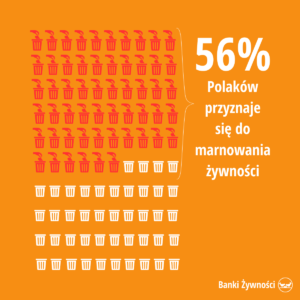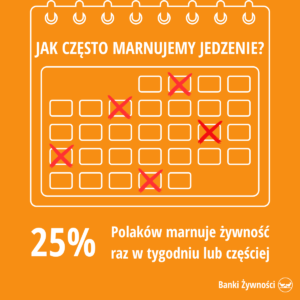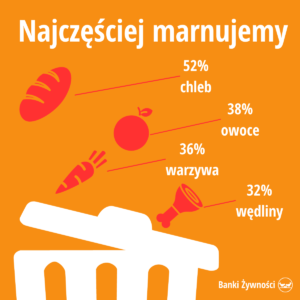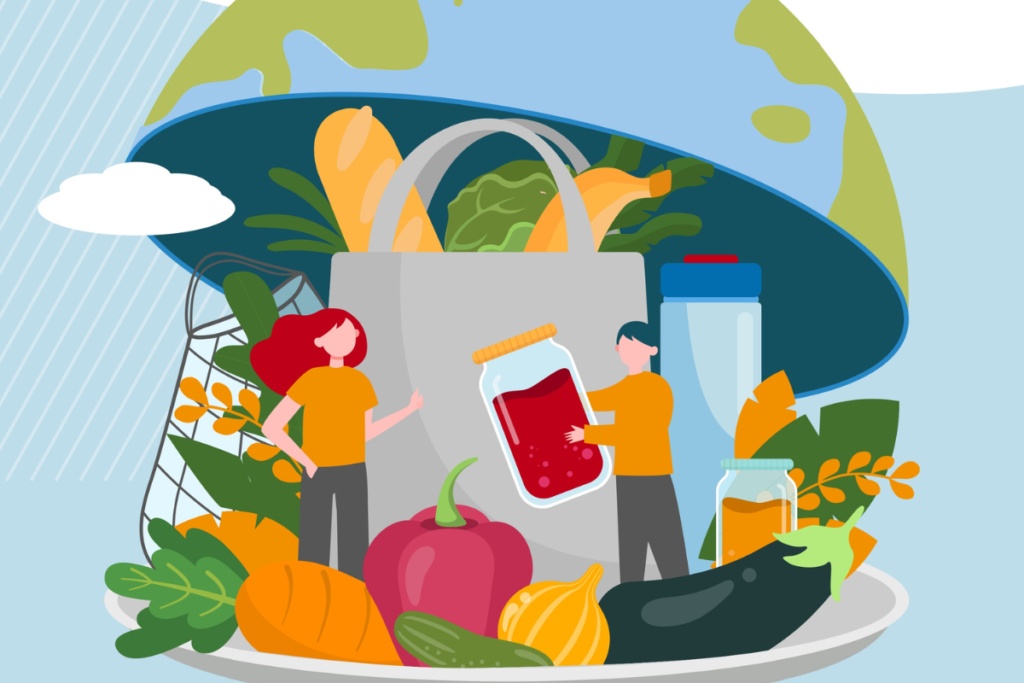12 April 2024
More Than Half of Poles Waste Food in Their Homes – Food Banks Publish Latest Research
56% of Poles admit to wasting food at home, while on the other hand, 1.6 million people live below the extreme poverty line. Bread, fruits, vegetables, and cold cuts are most often discarded – the Federation of Polish Food Banks has published the report “Don’t Waste Food 2023” on the scale of food waste in Poland.
POBIERZ RAPORT "NIE MARNUJ JEDZENIA 2023"
Pobierz plik
Wyślij link do pobrania do:
In Poland, 4.8 million tons of food are wasted annually, and consumers are responsible for 60% of the total discarded food. For the purposes of the “Don’t Waste Food 2023” report, Food Banks conducted research on a group of 1000 people, asking about their habits regarding food waste.
This year, over half of the respondents (56%) admitted to wasting food in their homes. This marks a negative record in the 14-year history of conducting research by Food Banks. Most often, bread (52%), fruits (38%), vegetables (36%), and cold cuts (32%) end up in the trash.

Food waste is a problem that has enormous consequences for society, the environment, and the economy. The Food Banks’ report helps to better understand this phenomenon and its causes – says Beata Ciepła, President of the Federation of Polish Food Banks. – For our organization, food is everything: it’s free aid that we can provide to those in need, it’s products that we rescue from waste, and it’s the main focus of our educational activities. We want everyone to have equal access to it and treat it with the same respect.
Few Positive Changes
Despite the problem still being widespread, there are some positive changes in consumer attitudes. The frequency of food waste has changed. Compared to previous research, there has been a significant increase in the percentage of people who discard food once a month (23%) or less often (25%). At the same time, fewer people declare wasting food a few times a week (6%) or a few times a month (24%).

The sharp rise in food prices due to high inflation also turned out to be an alarming signal for Poles. As many as 76% admitted to reducing food waste due to rising living costs. The most common decision is to give up selected products that are too expensive (61%). One in three respondents confirmed that they prepare smaller portions (36%) or dishes with fewer ingredients (33%). At the same time, as many as 18% admitted to giving up selected meals.
World Food Day
October 16th marks World Food Day. On this special occasion, every year the Federation of Polish Food Banks publishes a special Report containing statistics and research on food waste in Poland. Its aim is to draw attention to the still significant scale of food disposal and to mobilize for a change in attitudes.

A long-standing partner of Food Banks is the Lidl Poland network, which engages in many educational projects related to food waste reduction. This topic is a constant and important element of Lidl Poland’s corporate social responsibility. The network undertakes various actions to counteract food waste: at the level of each store, it optimizes order sizes, conducts its own “I Buy, I Don’t Waste” program, offers imperfect fruits and vegetables, and also lowers prices for products with slightly damaged packaging.
The cooperation between Lidl Poland and the Federation of Polish Food Banks has been ongoing since the inception of our operations in Poland. Since 2002, we have continuously supported those in need through food collections and educated society on ecology and shared ways to reduce food waste. Environmental protection is one of our priorities. We are proud to jointly with the Federation of Polish Food Banks combat resource wastage. In addition to regular charity actions, we develop educational projects, including “EcoMission,” aimed at primary school students – adds Aleksandra Robaszkiewicz, Head of Corporate Communications & CSR at Lidl Poland.




